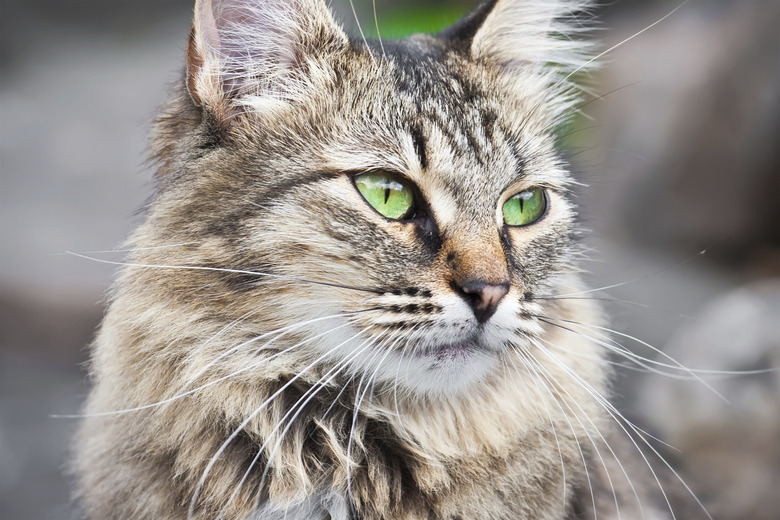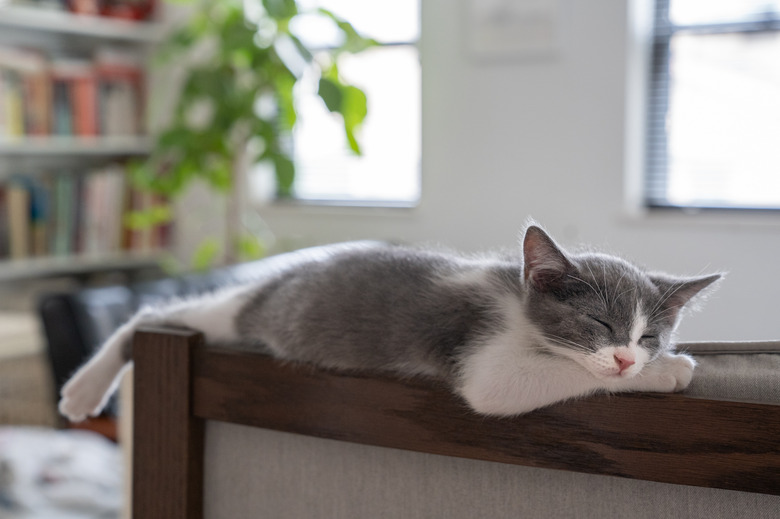Imodium And Cat Diarrhea
It's not unusual for a cat to suffer occasional bouts of diarrhea. A new cat food or mild gastrointestinal upset can cause loose stools. You might have the treatment for mild feline diarrhea in your medicine cabinet. Developed for humans, using Imodium for cats can relieve their diarrhea, but always check with your veterinarian before administering anti diarrhea medicine for cats.
Imodium's active ingredient
Imodium's active ingredient
Loperamide hydrochloride, the active ingredient in Imodium, works by slowing intestinal movement. It falls into the opiate class, with low narcotic effects.
While Imodium is marketed for people and there is no veterinary equivalent, veterinarians can recommend it for an anti-diarrhea medicine for cats under the U.S. Food and Drug Administration's extra-label usage.
Use caution when giving this medication to your cat, and only give the dose recommended by your veterinarian. They will give you the correct dosing information, based on the weight of your cat. You can purchase Imodium over the counter, in liquid or capsule form. Note that vets may also give this medication to a dog anti diarrhea medication prescription.
Imodium for cats with diarrhea
Imodium for cats with diarrhea
Use Imodium, with your vet's permission, only in cases of mild diarrhea. If the mild diarrhea doesn't resolve itself within a day or two of Imodium treatment, a vet visit is in order.
If your cat develops a serious case of diarrhea — including passing feces mixed with blood — he needs veterinary attention. Take your cat to the vet if he is constantly going in and out of the litter box. Cats with severe diarrhea can dehydrate rapidly; your vet might have to administer intravenous fluids.
Imodium side effects and contraindications
Imodium side effects and contraindications
Imodium for cats can cause side effects in certain felines. While it can stop your cat's episodes of diarrhea, he could end up constipated. Other side effects include lethargy and gas. Because Imodium can affect your cat's central nervous system, he could experience excitation.
Very old or debilitated cats shouldn't receive Imodium, nor should cats diagnosed with kidney or urinary tract disease, hypothyroidism, or Addison's disease. Don't give Imodium to pregnant cats. If your cat receives any other type of medication, check with your vet before administering Imodium.
In the meantime, restrict your cat's food intake and offer a lot of water while waiting to see if their condition improves. Boneless, skinless chicken breast can be a good meal choice after they start feeling better. But if your cat does not improve within 24 hours or their condition worsens throughout the day, a trip to the veterinarian is necessary.
Kittens and diarrhea
Kittens and diarrhea
If kittens experience diarrhea, it's a veterinary emergency. This condition is a sign of serious illness in young animals. Don't try to treat them with Imodium or any other anti-diarrhea medicine. Bring them directly to your vet.
While your adult cat might experience mild diarrhea from a gastrointestinal upset, in kittens, diarrhea often results from parasite infestation or bacterial infection. The cause is often contaminated food or a contaminated fecal environment. Because kittens are small and their immune systems undeveloped, a bout of diarrhea can prove fatal without immediate veterinary treatment.


